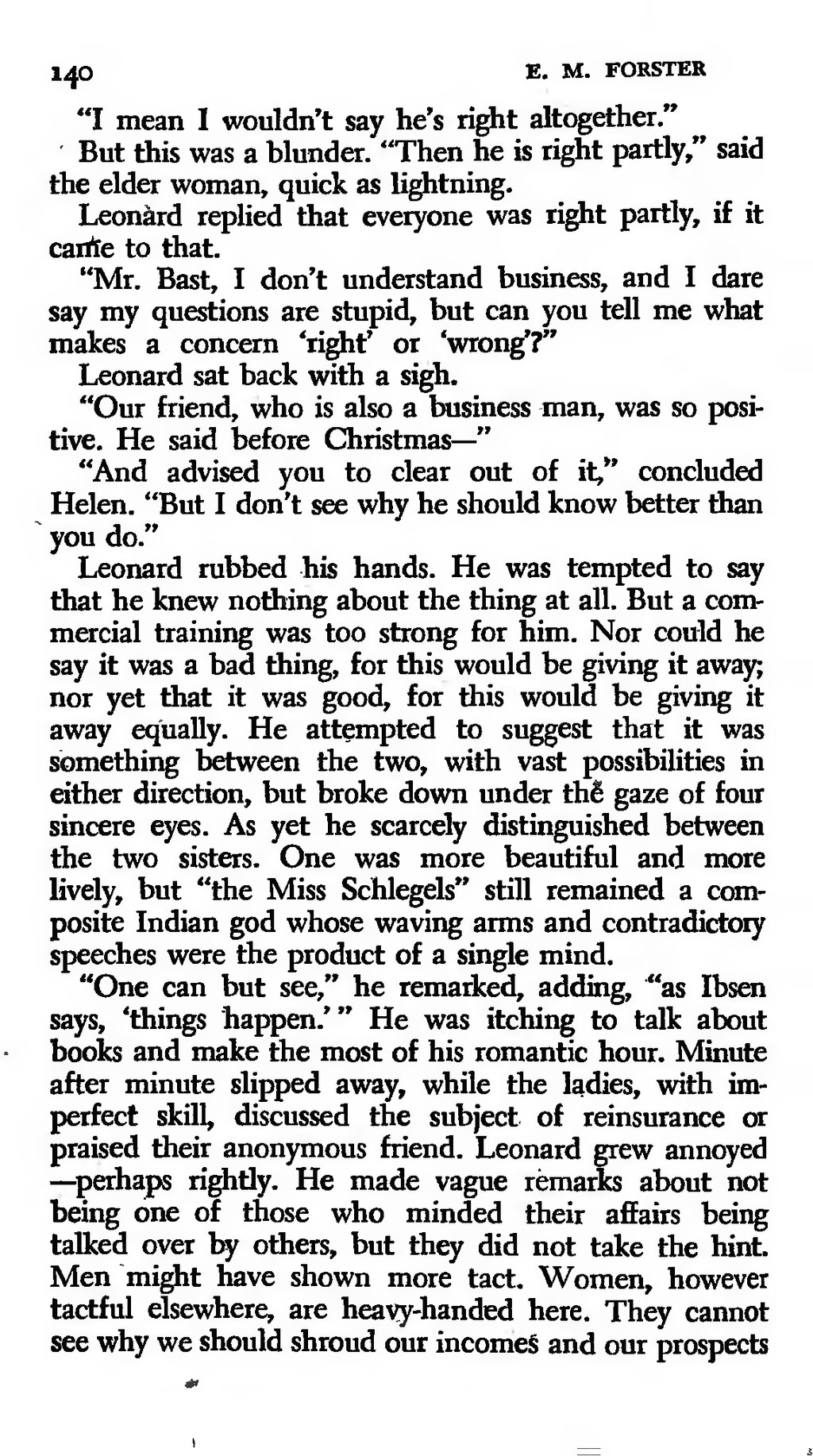"I mean I wouldn't say he's right altogether."
But this was a blunder. "Then he is right partly," said the elder woman, quick as lightning.
Leonard replied that every one was right partly, if it came to that.
"Mr. Bast, I don't understand business, and I dare say my questions are stupid, but can you tell me what makes a concern 'right' or 'wrong'?"
Leonard sat back with a sigh.
"Our friend, who is also a business man, was so positive. He said before Christmas—"
"And advised you to clear out of it," concluded Helen. "But I don't see why he should know better than you do."
Leonard rubbed his hands. He was tempted to say that he knew nothing about the thing at all. But a commercial training was too strong for him. Nor could he say it was a bad thing, for this would be giving it away; nor yet that it was good, for this would be giving it away equally. He attempted to suggest that it was something between the two, with vast possibilities in either direction, but broke down under the gaze of four sincere eyes. As yet he scarcely distinguished between the two sisters. One was more beautiful and more lively, but "the Miss Schlegels" still remained a composite Indian god, whose waving arms and contradictory speeches were the product of a single mind.
"One can but see," he remarked, adding, "as Ibsen says, 'things happen.'" He was itching to talk about books and make the most of his romantic hour. Minute after minute slipped away, while the ladies, with imperfect skill, discussed the subject of reinsurance or praised their anonymous friend. Leonard grew annoyed—perhaps rightly. He made vague remarks about not being one of those who minded their affairs being talked over by others, but they did not take the hint. Men might have shown more tact. Women, however tactful elsewhere, are heavy-handed here. They cannot see why we should shroud our incomes and our prospects
